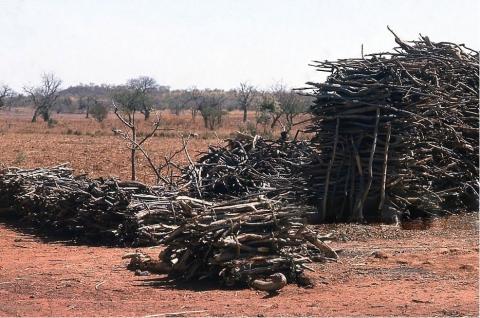It Would Be Foolish To Overlook The Coverage on Environmental Issues in Malawi
Submitted by fkakooza on

The future of life on the universe is in jeopardy. And global warming has drastically increased. Should we ignore this threat?
Has the media said something or they have remained quiet in the newsrooms as they cover politics?
“Even environment news is really politics as well because it is a way to govern people — make them thrive and prosper,” said James Chavula, Features Writer and Head of Solutions Journalism at Nation Publications Limited.
Chavula added, “In Malawi, environmental reporting is something that journalists will do when they think they don’t have what to do but in reality, you cannot provide a good facility such as health while neglecting the environment.”
Of course, only 9 percent of all plastics ever manufactured has been recycled, the United Nations Environment Program(UNEP), the leading environmental authority in the United Nations system, revealed and close to 80 percent of plastics have been dumped in the environment, with others being burned which release emissions that have accelerated global warming and air pollution.
Africa remains with the huge plastic waste problem. And this includes Malawi.
Still, it’s undoubtedly true that plastics have simplified our daily life– making it affordable or even safer.
Moses Kaufa, the Executive Director, Media Council of Malawi is confident that through the formation of the Association of Environmental Journalists in Malawi, there has been a slight rise in the coverage of the environment, but he affirms that environment and climate change are not getting the attention they deserve in the media compared to other stories such as politics.
And when climate change issues come to light, especially horrifying ones like global warming, shouldn’t both the government and the media strengthen ties and efforts rather than not coordinating for this great cause?
Predictably, the issue of global warming is increasing. Unless deforestation and carbon emissions are reduced by 2030, it will be difficult to limit global warming as recommended in the 2015 Paris climate agreement. This should raise an alarm but whose role is it to advocate environmental conservation and clean cooking solutions?
Of course, 75% of the world’s ice-free land has been altered. Over half of the planet’s habitable surface is used to produce food. In the last one hundred years, 90% of large fish have been removed from the sea.
But we’re not done yet. Even if we promote advocacy journalism perfectly to its peak, the public seem not to have learnt much as they think climate change isn’t serious. We may have just wasted the effort. That’s because the very people who follow the press (on the environment and climate change) are still disposing harmful products to the environment.
What should be done —we’re even debating about it — is to promote our coverage on environmental stories. This is paramount;
- 96 reads
